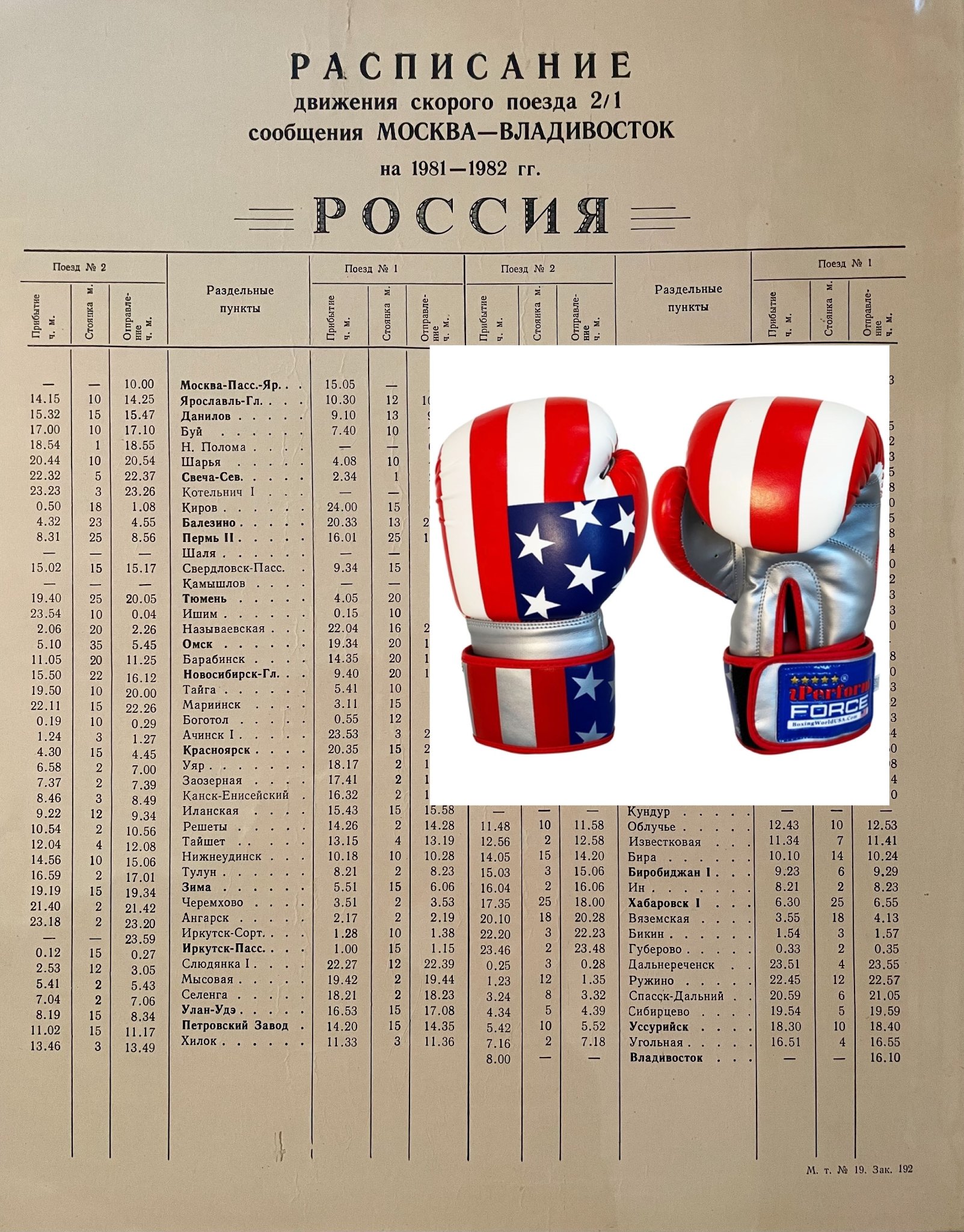MAY 10, 2022 – (Cont.) “On board our train [from Moscow to Irkutsk],” I wrote home, “was a small group of British and American tourists headed for Irkutsk, Ulan-Bator (capital of Mongolia), Beijing, and Hong Kong. Among them was a bloke from North Dakota named Karl. Karl, about 22 years old, was tall and gangly, and looked very Norwegian. He was cheerful, friendly, and courteous, so we [my “Delightful Dozen” Western friends aboard the train and I] nicknamed him ‘The Hero.’ I suppose you could think of Karl as a model ‘All-American.’ The only time we talked to him or his fellow travelers (including one Allen Harris, keeper of the Queen’s carriage) was during meals, but on one particular evening, Karl walked down to our carriage.
“Doug and Reinhold invited him into their compartment, and so the six of us, including Françoise and Lisa, chatted for a while. Eventually, Françoise and I slipped out of the conversation to listen to some [French ballades] on a cassette player. Every few minutes, however, I would bend an ear to the discussion between Doug and Karl. It gradually grew louder and hotter. The subject was East-West relations; leftwing vs. rightwing.
“Karl, a born-again Christian, was shockingly ignorant. ‘Tell me,’ he’d asked. ‘Do they have airports in China?’ Although he himself was going to Mongolia and China, he’d made no attempt to learn about either place. He couldn’t identify the capital of Mongolia even though he was to spend three days there! Nevertheless, Karl clung to his rightwing perceptions (he thought Reagan should send more troops to El Salvador) as if he were well-versed in facts and logic.”
My letter also conveyed my impressions of Doug: “[He] was an extraordinary character—obnoxiously egotistical at times but also remarkably selfless. He mixed fields of bullshit [sic] with mountains of genuine erudition. I felt at once disdain and admiration for him. After a day or two I managed to get to the root of his personality problems.” His politics, I remember, were definitely left-of-center by American standards, and being quite well schooled in Latin American history and politics, he took a very dim view of Reagan’s policy with regard to El Salvador, in particular.
“When voices reached such an emotional level that the two debaters hurled personal insults at each other,” my letter continued, “I stepped in. To Karl I said, ‘You mustn’t confuse the substance of what Doug is saying with his manner of expression. You may not like his delivery, but I think you can learn something from him.’ To Doug I said, ‘Don’t be so goddamned overbearing. You’re smothering your opposition with insults when you should be debating objectively. With your knowledge and understanding, you have the responsibility to educate Karl, not destroy him.’
“With that, the two simmered down and resumed their discussion at a lower volume. Soon thereafter, Françoise and I joined Annika [one of the two Swedes among the ‘Delightful Dozen’], who was standing at a window in the corridor. We’d been chatting for about half-an-hour when suddenly the door to the ‘debate compartment’ opened and Karl came hurtling out with Doug in hot pursuit. They threw punches at each other and at that point, I stepped between them.
“‘Karl!’ I ordered. ‘You go back to your carriage! . . . Doug!’ I commanded, ‘You sit down and cool off!’ The two exchanged a few choice words about each other and remained locked in combat. Again I pushed my way between them and said, ‘You’re doing wonders for the American reputation. Now, stop!’
“By this time we had quite a crowd of onlookers, including Russian passengers and the two carriage attendants (irate women). With a bit of physical persuasion, I got Karl marching in the right direction and returned Doug to his seat. Embarrassed by the whole incident, I grabbed my phrasebook and communicated to the Russians my deep regret for the disturbance.
“Next, Françoise, Annika, and I retired to the privacy of the smoking vestibule at the end of the carriage. There I expressed my sadness, disappointment, and frustration. On one hand, I was shocked by Karl’s ignorance, and on the other hand, I abhorred the intolerance and violence shown by Doug (he’d been the principal belligerent). ‘How can there be peace and understanding among nations,’ I wondered aloud, ‘when between individuals [of the same nationality] there is such ignorance and violence?’
“Both Françoise and Annika, relatively recent visitors to the U.S., were not particularly enamored of American society, and the show starring Doug and Karl did little to improve their impressions.
“As an afterword—I worked hard to engineer a reconciliation between Doug and Karl. I wasn’t sure of my success, but when we parted ways in Irkutsk, Doug handed me a written apology to deliver to Karl.”
(Remember to subscribe to this blog and receive notifications of new posts by email.)
© 2022 by Eric Nilsson
